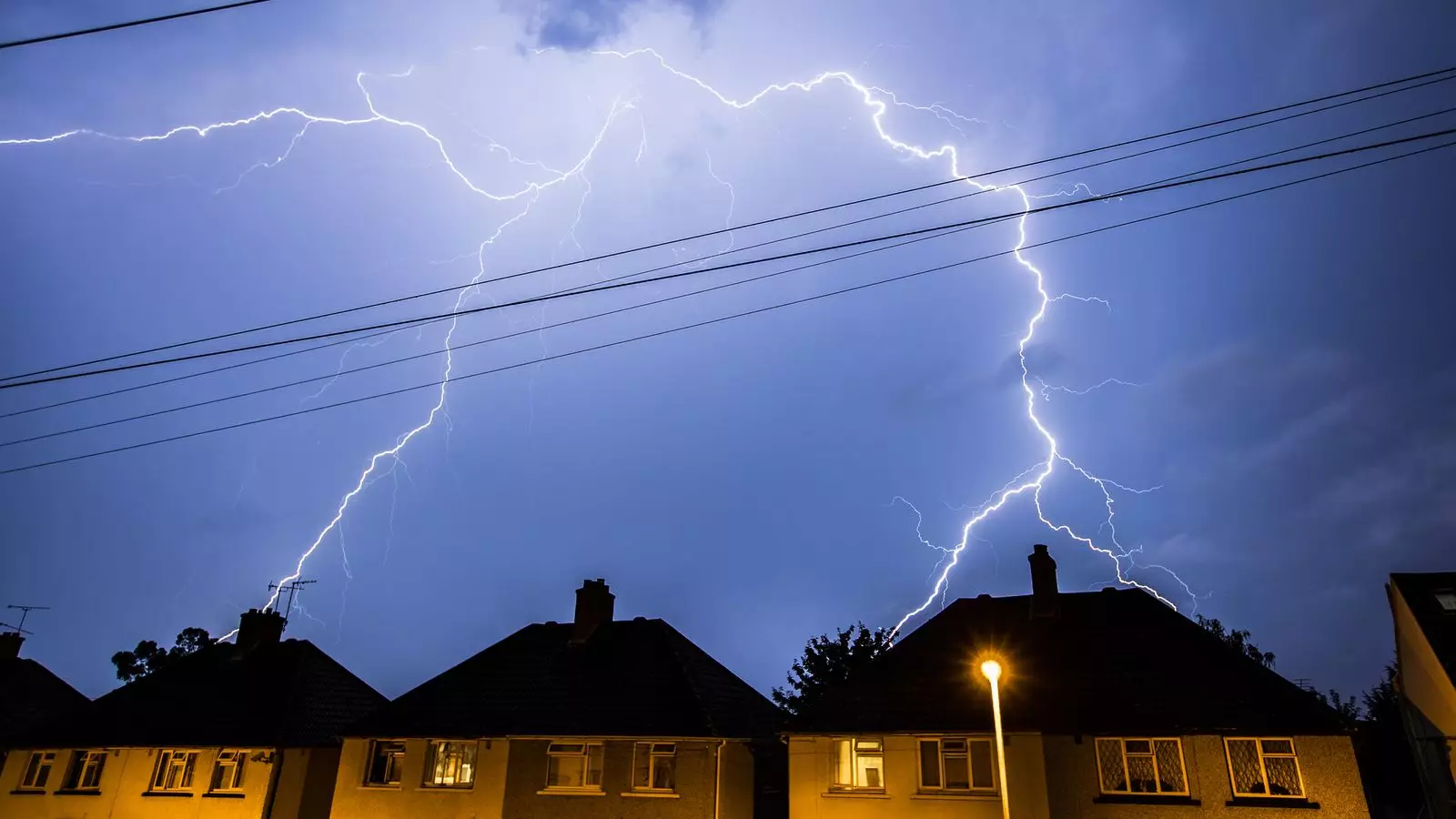In a world increasingly obsessed with the superficial hustle of daily life, society often fails to confront the underlying crises that threaten its stability. The recent deluge forecasted for London and southeast England is not merely an isolated weather event; it reflects a broader pattern of environmental imbalance driven by human activity. While meteorologists warn of “torrential” rain capable of wreaking havoc—destroying homes, crippling transportation, and causing power outages—the core issue remains overlooked: our collective negligence in addressing climate change. The escalating frequency and severity of such storms symbolize a profound failure to respect nature’s increasingly unpredictable rhythm. Instead of viewing these events as wake-up calls, society continues to dismiss the gathering storm, preoccupied with short-term gains over long-term sustainability.
The Inevitability of Catastrophe
The warnings issued by the Met Office, predicting up to 100mm of rain in just a few hours, should serve as a stark reality check. Yet, beneath the surface lies a troubling complacency. Communities are warned of being “likely” to become cut off, with flooding likely to destroy infrastructure and displace residents. These concrete forecasts reveal the fragility of our urban environments—delicate ecosystems and man-made constructs equally vulnerable to nature’s fury. The unsettling truth is that these warnings should not evoke surprise but should provoke urgent reflection on how society adapts—or fails to adapt—to the increasing volatility of our climate. Ignoring these signals, or delaying meaningful action, only deepens our collective vulnerability.
Failure of Policy and Infrastructure
Politically, the response to such natural disasters exposes the deficiencies of current governance. While warnings of “rapid flooding” and potential power cuts are issued, actual investments into resilient infrastructure remain insufficient. The persistent droughts and hosepipe bans across England, despite the current deluge, underscore the contradictions baked into our environmental policies. For years, policymakers have prioritized economic growth over ecological preservation, creating a fragile balance that collapses at the first sign of extreme weather. The fact that reservoirs are at just 75.6% capacity amidst persistent rainfall reveals a gross mismanagement of resources. Our neglect is manifest in underfunded flood defenses, outdated stormwater systems, and a general failure to integrate ecological foresight into urban planning.
Society’s Denial and Complacency
Meanwhile, the general populace remains largely indifferent or ill-informed about the depth of these issues. Many see weather extremes as isolated incidents, overlooking the interconnectedness of ecological health and human activity. The narrative often centers around inconvenience rather than risk—delays, cancellations, and power outages as mere nuisances, not signals of systemic failure. This complacency feeds into a dangerous cycle where reactive measures are prioritized over proactive solutions. It is a reflection of a society that prefers to ignore difficult truths, avoiding the responsibility to confront the environmental reckoning waiting just beyond the horizon.
A Call for Wake-Up and Reform
The extreme rainfall is a striking illustration of the urgent need for societal awakening. It challenges us to reconsider our relationship with nature, urging a shift from exploitation to stewardship. Instead of continuing to dismiss climate change as a distant threat, we must recognize it as a present danger that demands bold policy reforms, sustainable infrastructure investments, and community resilience strategies. This storm—whatever its precise path—should be a catalyst for action, forcing us to face our own complicity in environmental degradation and to embrace a future where adaptation becomes our primary goal. Only through acknowledging our errors and committing to meaningful change can we hope to build a society capable of weathering the inevitable storms ahead.

Leave a Reply